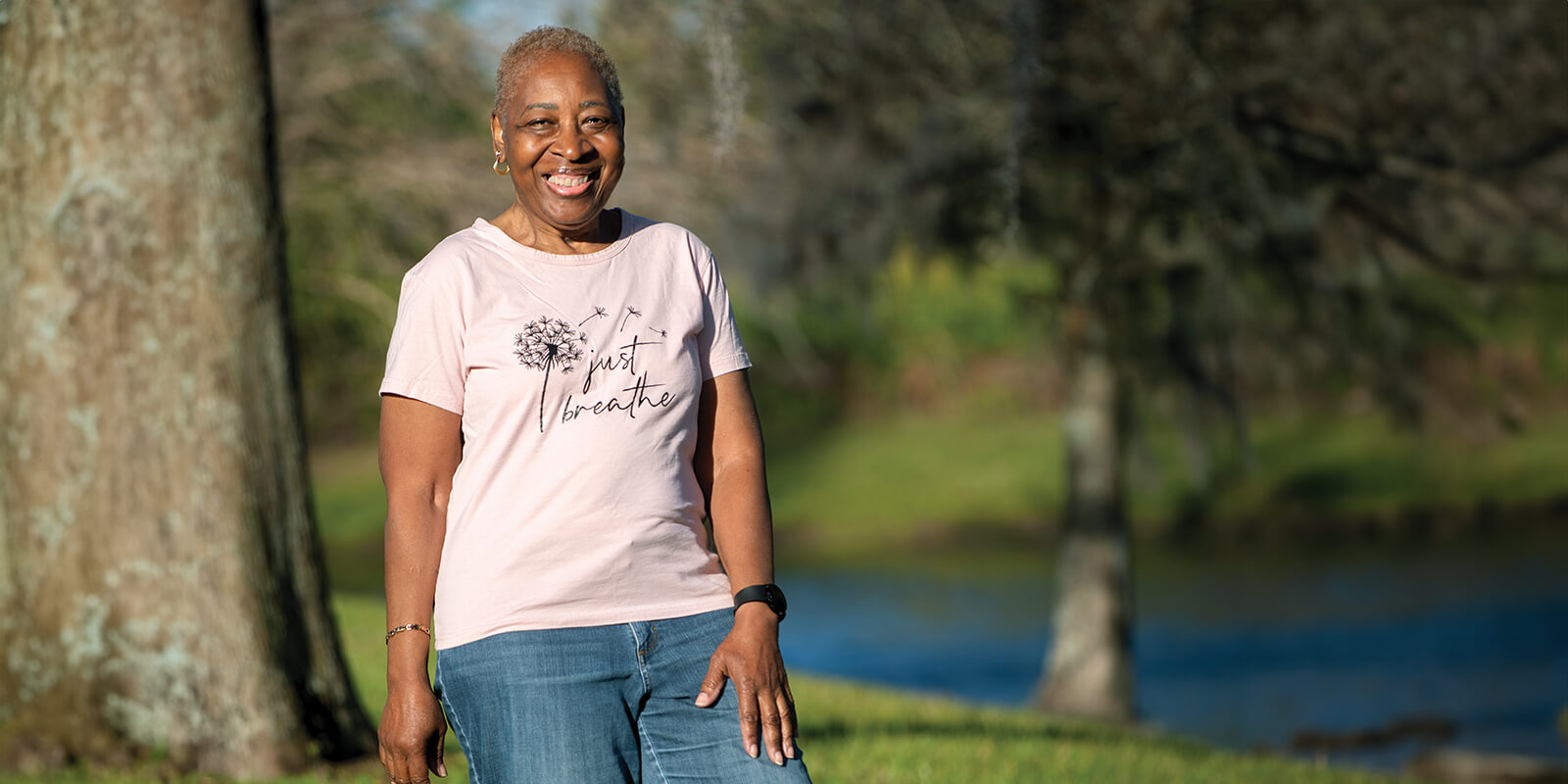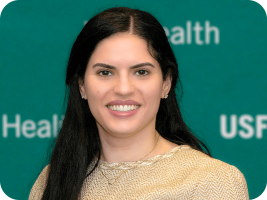
After 30 years she found her cure
 or three decades, Cookie Huddleston struggled for every breath. Climbing stairs or walking a few blocks left her gasping for air. She sought relief from one physician after another only to be prescribed inhalers that never worked.
or three decades, Cookie Huddleston struggled for every breath. Climbing stairs or walking a few blocks left her gasping for air. She sought relief from one physician after another only to be prescribed inhalers that never worked.
“I was being treated for asthma; I had allergy tests and all kinds of scopes,” Huddleston says. “They even told me it was allergies, but they couldn’t tell me what I was allergic to.”
The now 75-year-old Wesley Chapel resident says she lived in fear. “I thought I was going to die in my sleep because I couldn’t breathe.”
Eight years ago, a specialist finally identified the cause of Huddleston’s problem: a rare condition called bilateral vocal cord paralysis. She had a diagnosis — but no viable treatment option.
“And then a doctor told me, ‘Your vocal cords are paralyzed; both of them are paralyzed.’ And I’m thinking, OK, I don’t know what that means,” Huddleston recalls. “In eight years, no doctor ever mentioned a treatment.”
She had long since resigned herself to living with the condition for the rest of her life.
But last year, Huddleston allowed herself a spark of hope when she was referred to the USF Health Voice Center. The only multidisciplinary academic voice center in the Tampa Bay Area, its specialized experts provide advanced care for voice, upper airway and swallowing disorders.
Since its founding in 2021, the Voice Center has experienced a 50% increase in patients, reflecting its growing impact and reputation. It offers minimally invasive treatments for swallowing difficulties, cutting-edge surgical techniques for airway disorders and comprehensive voice therapy services, including interventions that are not widely available elsewhere.

The benefit of going to an academic center like USF Health is that you have all these experts and specialists in one place.”
– Dr. Yassmeen Abdel-Aty
Laryngologist Dr. Yassmeen Abdel-Aty determined that Huddleston’s condition stemmed from a surgery she underwent 30 years earlier, when her cancerous thyroid gland was removed. During the procedure, the nerves to both vocal cords had been damaged, leaving them paralyzed in what doctors call the “midline position” — nearly closed.
“When we breathe, our vocal cords open. When we talk or swallow, our vocal cords close,” Abdel-Aty explains. “Her vocal cords couldn’t move from the midline position, which gave her a very small sliver of airway to breathe out of.”
Abdel-Aty recommended a procedure called endoscopic suture lateralization — a minimally invasive technique that pulls one vocal cord outward with a stitch to open the airway.
It was a resounding success. Huddleston’s breathing improved immediately, and her voice sounded much as it always had. She can now enjoy activities that once were impossible.
For Abdel-Aty, Huddleston’s story shows how academic medical centers like USF Health provide access to the greatest range of specialists and experts.
“The benefit of going to an academic center like USF Health is that you have all these experts and specialists in one place,” she says. “If you have a problem where maybe a general ENT physician does not feel comfortable treating it, you have options to discuss it with someone more specialized.”
Beyond clinical care, the Voice Center is at the forefront of groundbreaking health research. It leads a trailblazing project that aims to use human voices to help doctors diagnose illnesses, from cancer to depression. Called Bridge2AI Voice as a Biomarker of Health, it starts with building an ethically sourced, AI-enabled database of 10,000 voices from patients with different illnesses.
The project is funded by the National Institutes of Health and spearheaded by Voice Center director Dr. Yael Bensoussan in collaboration with Weill Cornell Medicine and other institutions across North America. Researchers anticipate Bridge2AI will pave the way for innovations that revolutionize health care.
For Huddleston, the Voice Center has already been life-changing.
“I wish someone had told me this 20 years ago,” she says. “Even being able to cut the yard now — it is a small thing, but to me it is a miracle.”

